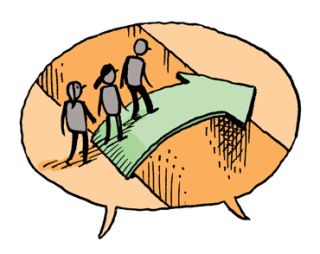Robust social dialogue needed to address social, environmental and economic challenges

The immediate policy challenges facing Ireland and hampering a fair and inclusive recovery are a totally inadequate supply of social housing; a two-tier healthcare system; climate change; digital divide, growing inequality; homelessness; and challenging climate targets. A robust social dialogue process involving all stakeholders is required in order to address these challenges.
This is the message that Social Justice Ireland relayed to the European Commission Country Team for Ireland during a meeting to discuss implementation of the recovery and resilience plan, the green and digital transition, Sláintecare, housing and economic and social challenges.
The commitment to a sustainable recovery in Ireland’s recovery and resilience plan is meaningless unless this sustainable recovery brings a fairer, more just and, therefore, more equal society. People want access to healthcare in a time of need, affordable and appropriate accommodation, meaningful work with a decent wage, a minimum floor of social supports in a time of need, access to decent services and protection of the environment.
A robust social dialogue process provides a structure where current and future challenges can be addressed in a positive manner, acknowledging the task ahead, where reasoned and evidence-based debate forms the basis for decision-making, and where all stakeholders are included in the decision-making process.
Government should develop a new structure for social dialogue to ensure the recovery and resilience plan addresses the key challenges the country is facing. These include infrastructure (e.g. social housing, public transport, rural broadband); services (e.g. healthcare, education, caring); climate change; just taxation; and good governance. These are all issues that impact on the economy and are impacted on by the economy. Ireland needs an approach that addresses these issues simultaneously, not one that gives priority to the economy and hopes the benefits will trickle down, which they never do.
In our policy brief on Social Dialogue, we set out 10 important features of a Social Dialogue Model. When groups have been involved in shaping decisions, they are far more likely to take responsibility for implementing these decisions, difficult as they may be. In the absence of a real Social Dialogue at national level, the strongest can fight their corner in the open market or in the political realm, while the weakest will be left behind. In such a scenario inequality, already at unacceptable levels, will continue to grow and the integrated development that is required will not be achieved.